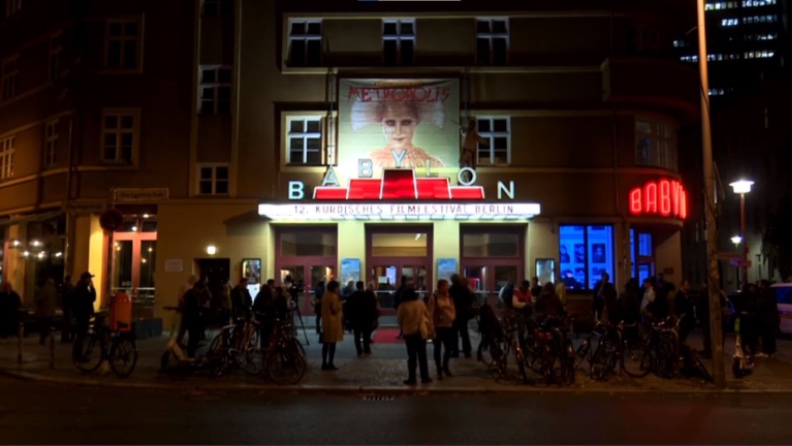Kurdish film to debut in Berlin
Kurdish film to debut in Berlin
A Kurdish movie Bihar (Spring) directed by Cemile Şahin focuses on the life of the Bingöl family, displaced from Şanlıurfa (Riha) in north Kurdistan (officially southeastern Turkey) due to the GAP dam project.
A Kurdish film, Bihar (Spring), directed by Cemile Şahin premieres on 8 February in Berlin, Germany.
Bihar is the first in the four-part feature film series, Çar Balad ji bo Bavê min (Four Ballads for My Father), and tells the story of the Bingöl family from Şanlıurfa (Riha), displaced from north Kurdistan (officially southeastern Turkey) due to the GAP dam project*.
Hasan Bingöl, the father of the family, is wrongly summoned and disappears in police custody. Soon after his disappearance, the family is forced into exile in Paris.
His daughter Dicle, criminalised by the Turkish state and imprisoned in Istanbul, is eventually released but not allowed to leave the country. She is forced to live apart from her mother Leyla, her brother Firat and her uncle Kazim.
Under themes of police violence, state-led terror, using water as a weapon of war, and enforced resettlement as an instrument of authoritarian power, the family sets out to find Hasan. The entanglement of their own story with the history of exploitation and repression of the region becomes increasingly palpable.
The film also includes a documentary style life story of Hasan. “Hasan is missing for 26 years. But she never stops searching for him,” said the wife to documentarists.
The multi-lingual movie also consists of parody elements by concentrating on French and Turkish state relations. “France and Turkey connect a long-standing friendship, like a family. The most important thing life is family,” says one of the characters.
With her Alevi** and Kurdish identity, Cemile Şahin’s debut novel TAXI was published in 2019 and she was praised as “a force” by literary critics and journalists. In 2020, Şahin received the Alfred Döblin Medal, which honours authors for their first promising publications and their literary work.
* During the South-eastern Anatolia Project (GAP), the Turkish state planned to separate all Kurdish provinces with dams. Throughout the project, the government forced Kurdish populations to migrate. It also destroyed Kurdish historical, social, and cultural sites, and aimed to reinforce the Turkish nation-state.
** Alevi identity refers to a predominantly Kurdish religious sect whose adherents follow the Alevi Islamic teachings of mystic Hacı Bektaş Veli. Primarily living in Turkey, Alevi’s have been exposed to much political and social violence in the Turkish cities of Dersim (1938), Maraş (1978), Çorum (1980), and Sivas (1993) because they are seen as a threat to the Turkish government’s Sunni identity.









Leave A Comment